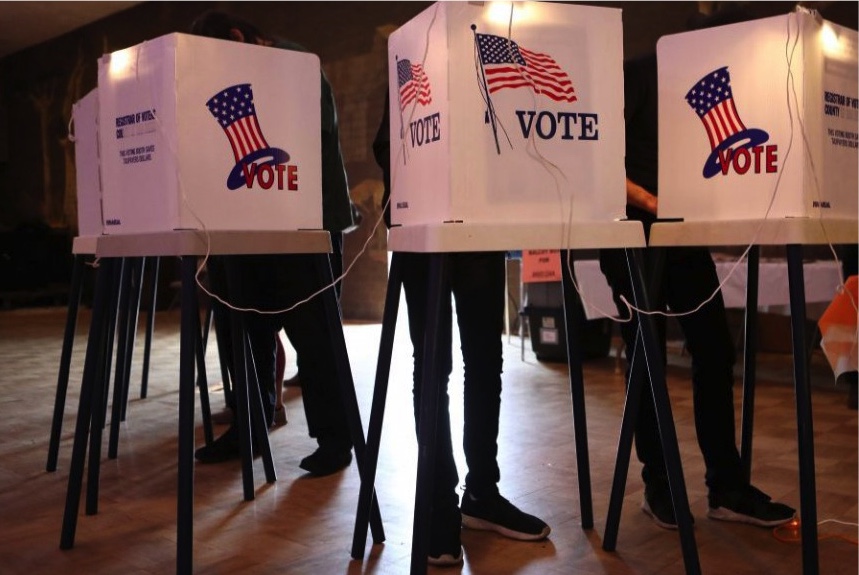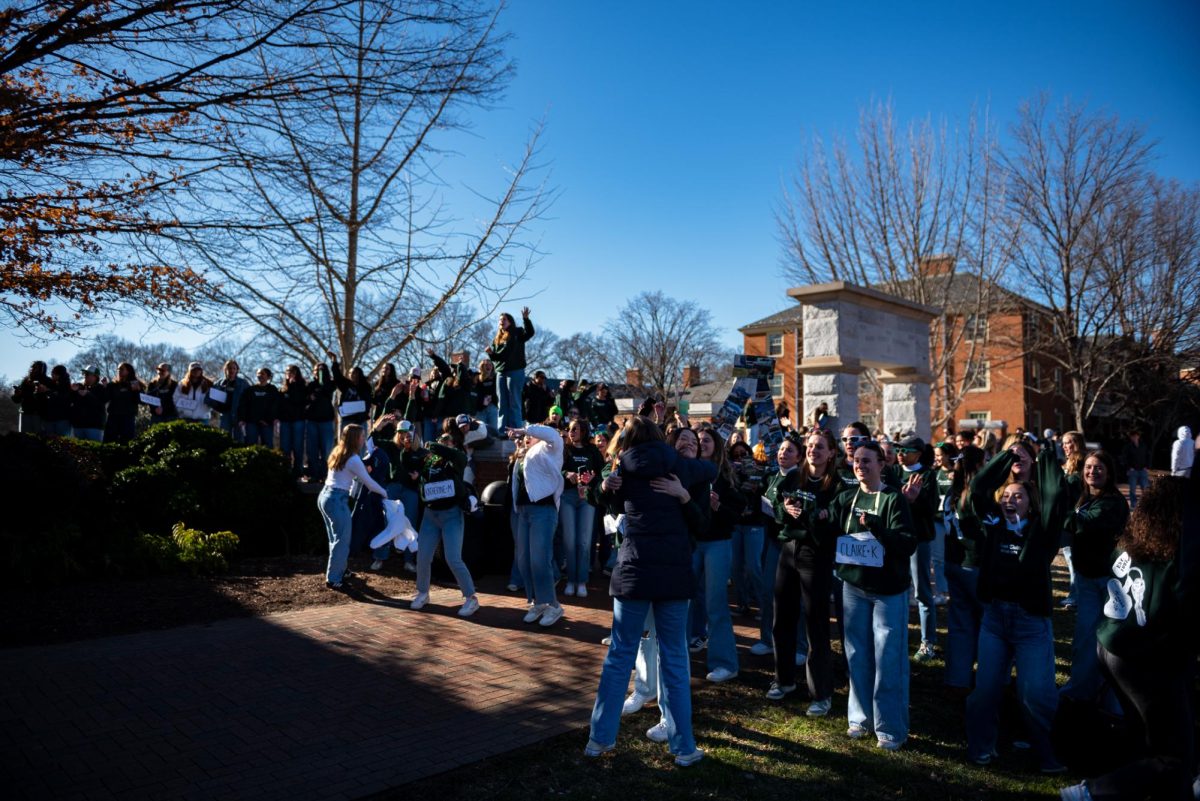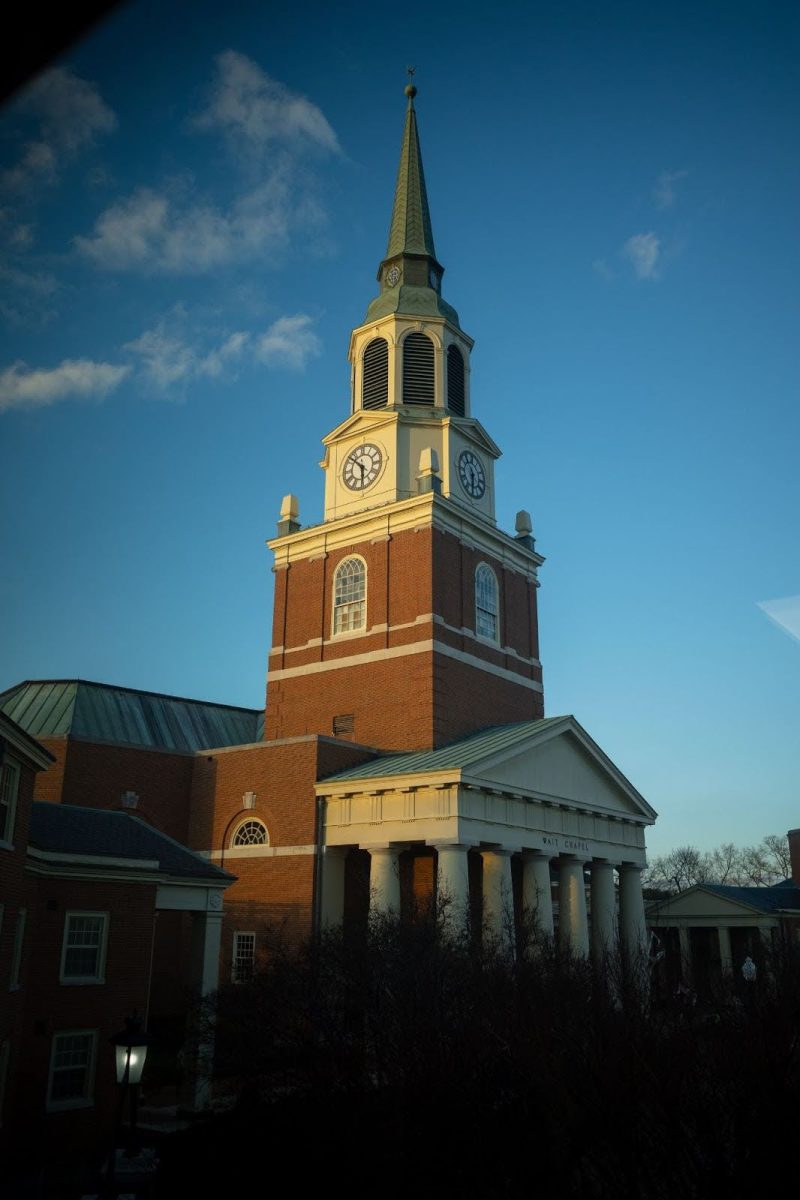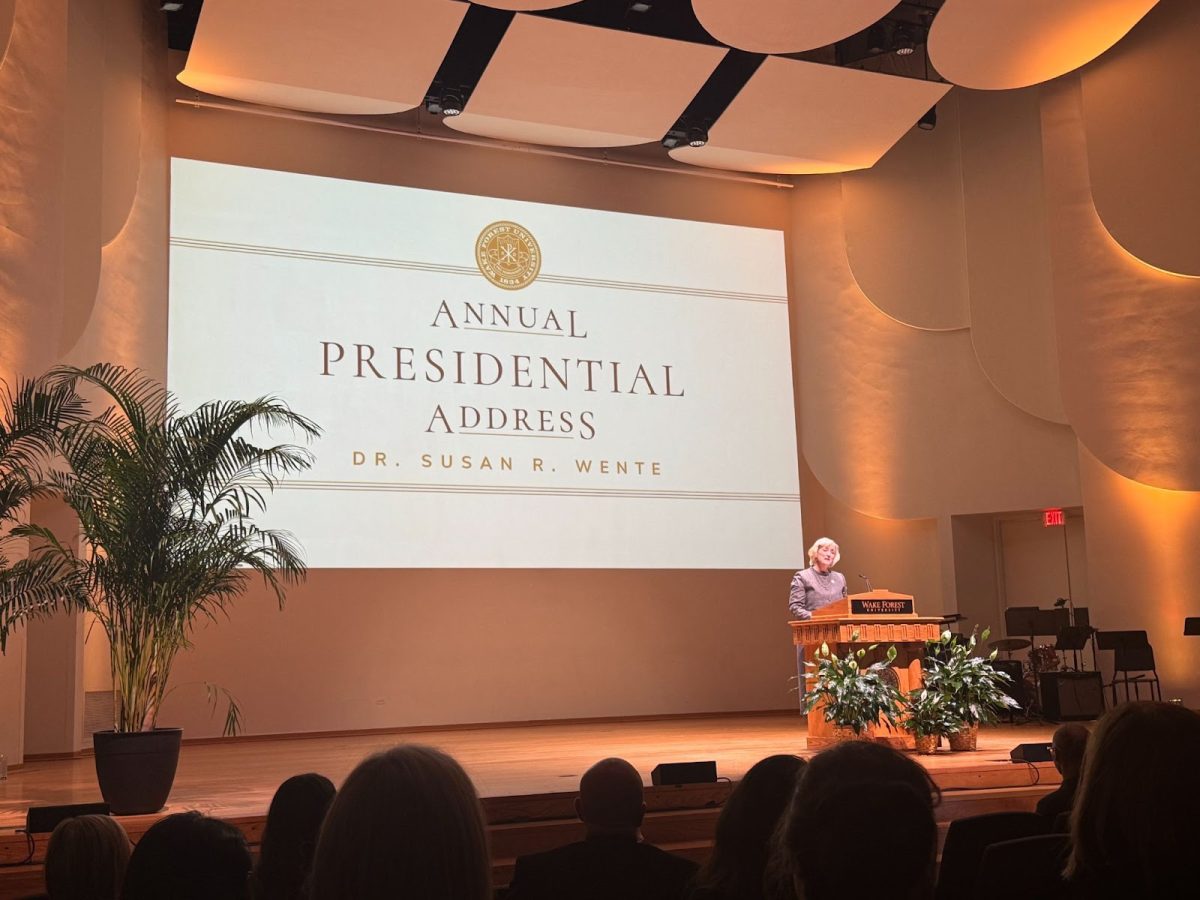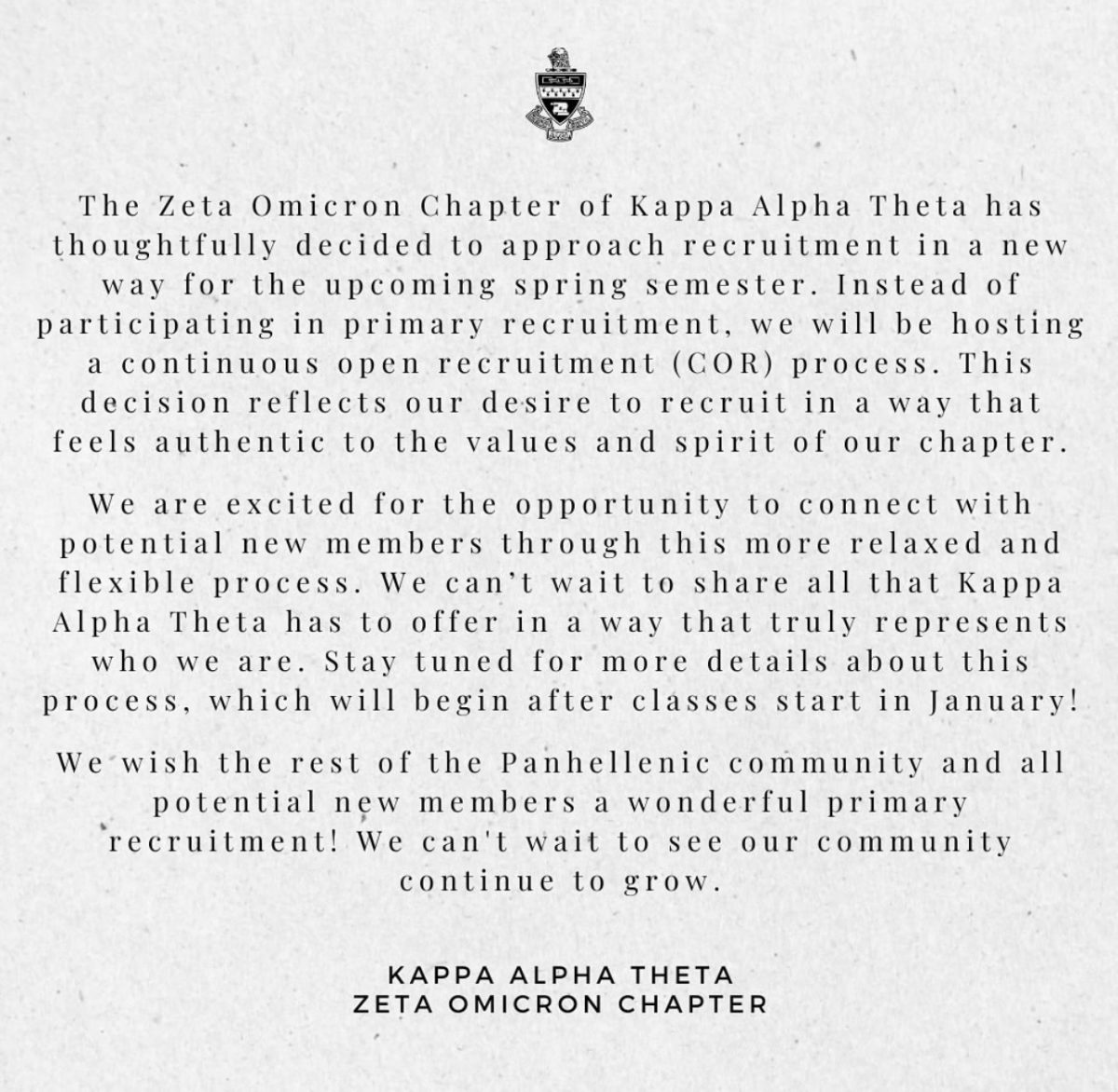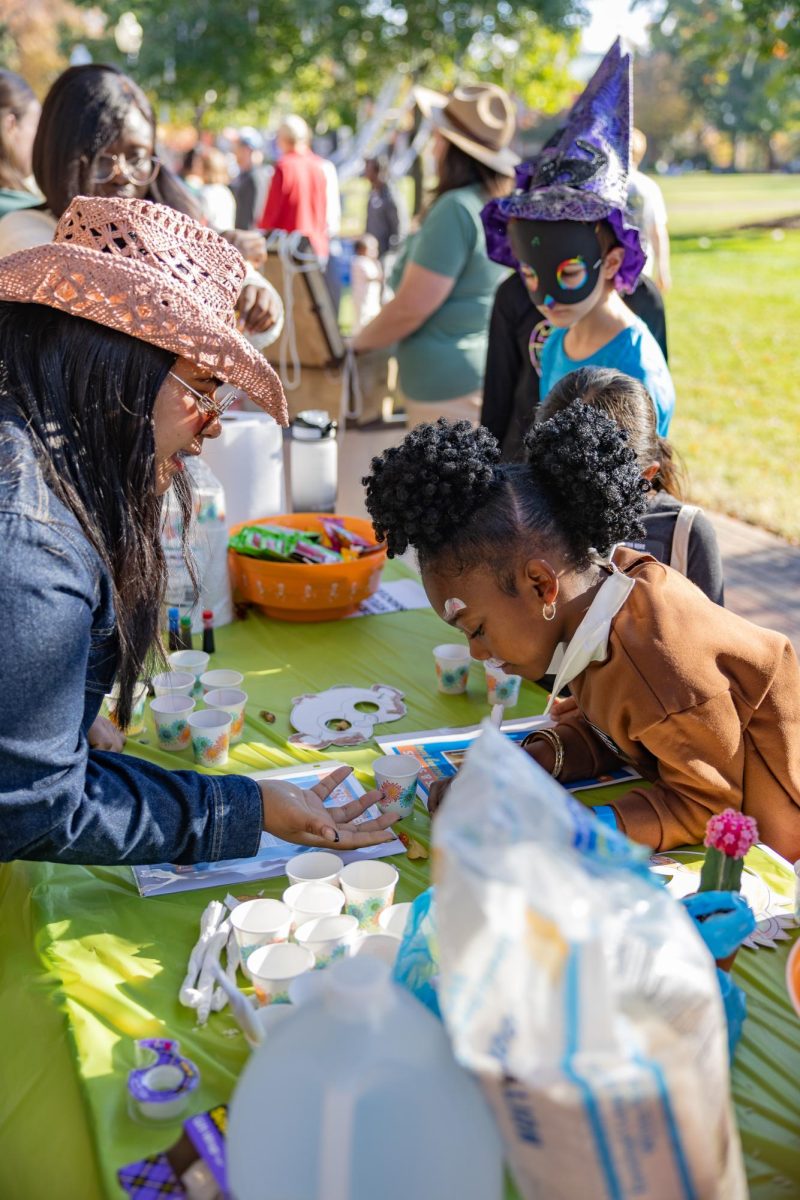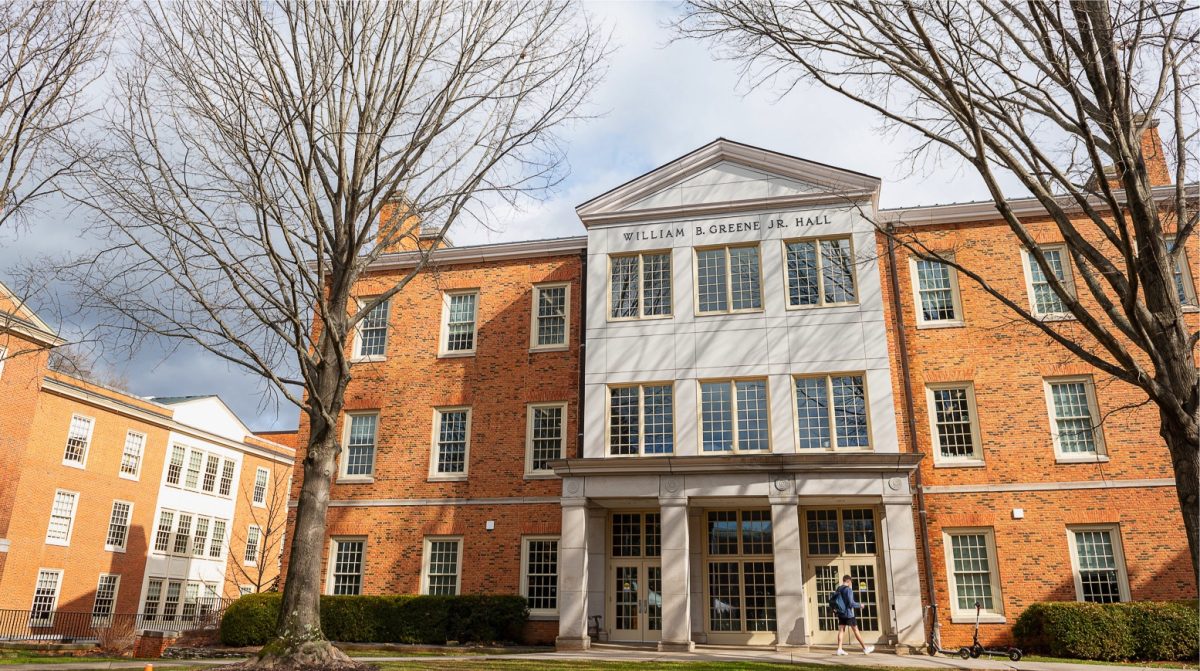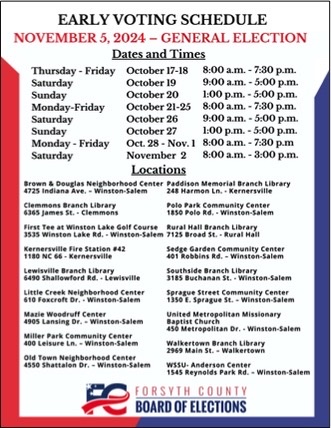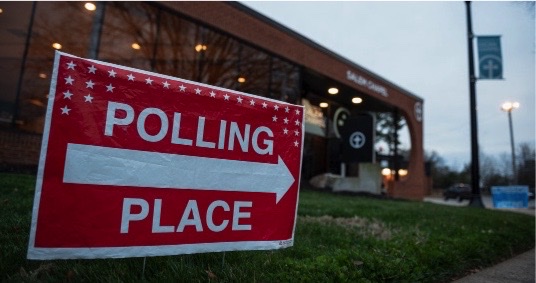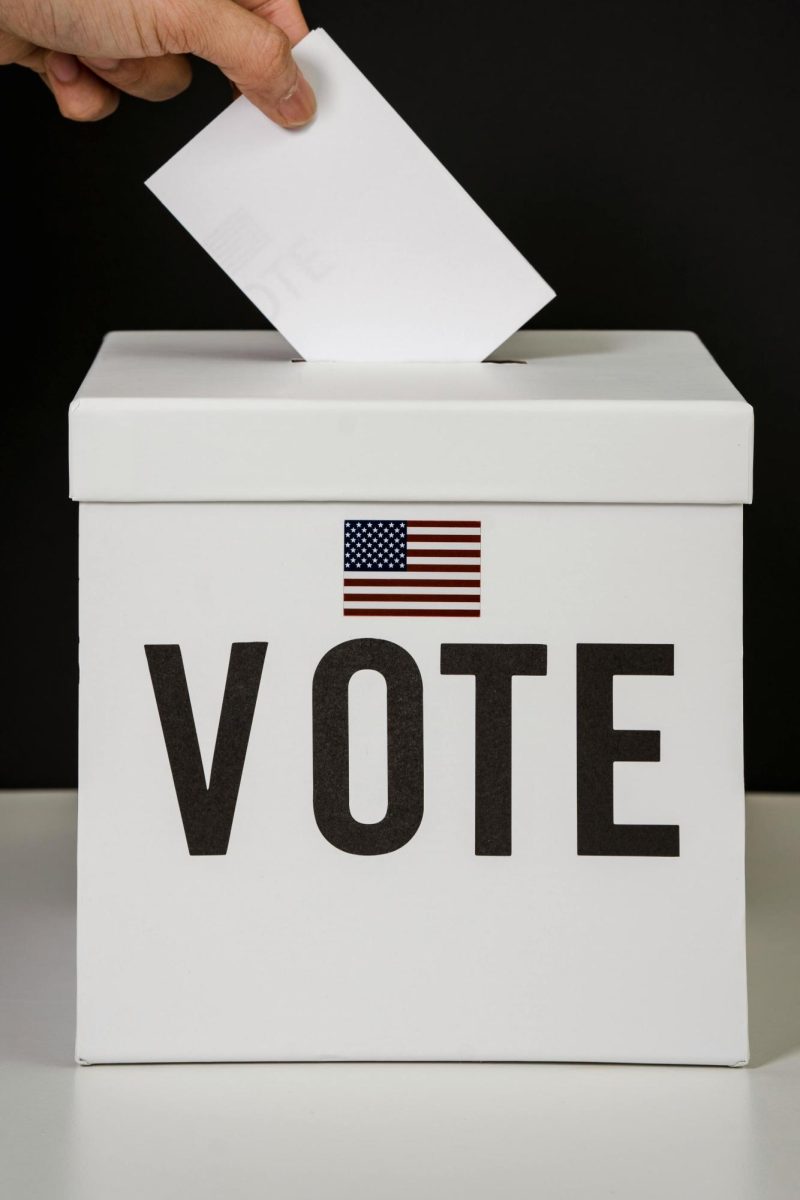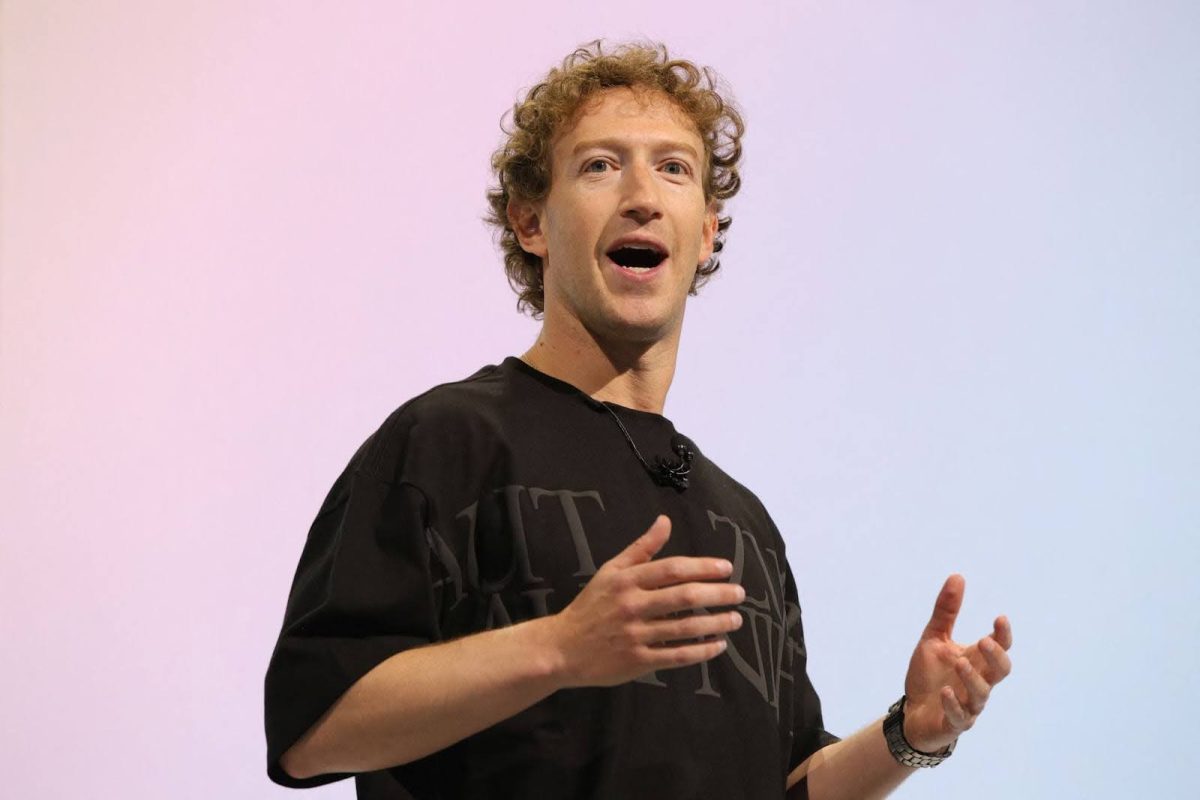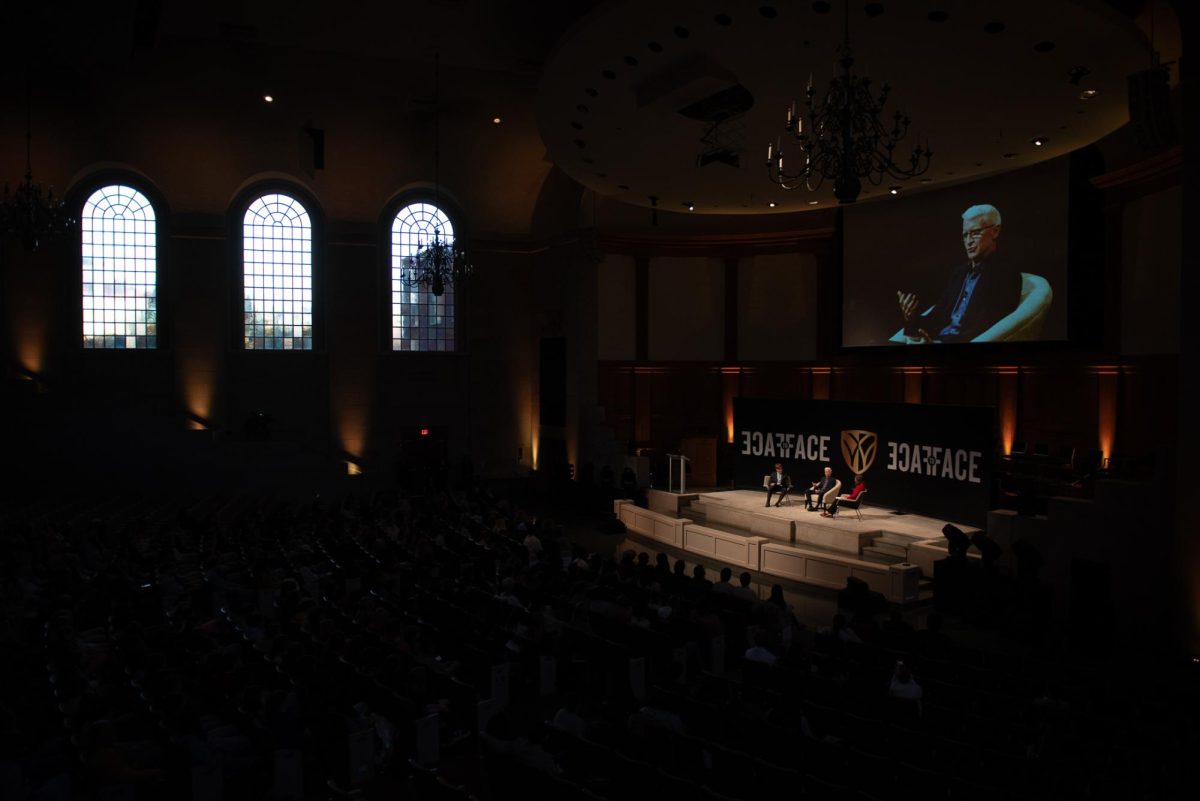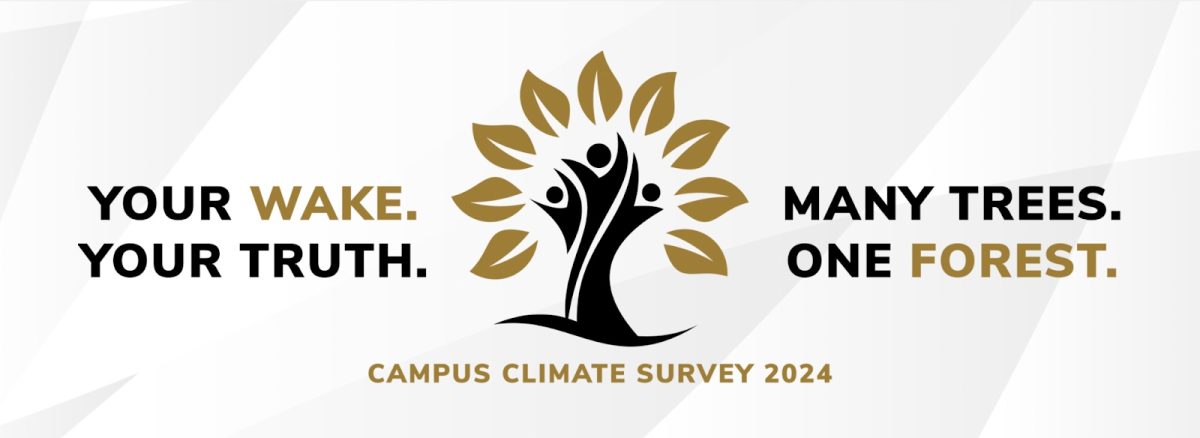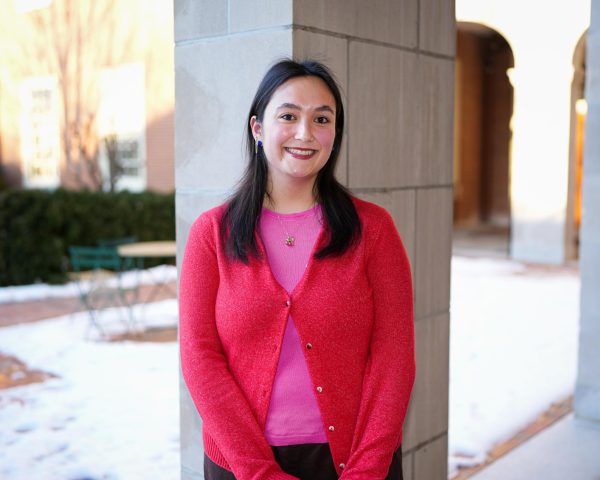Many first-year students at Wake Forest are engaging with their home and school communities as they navigate another milestone: the first presidential election in which they are of voting age.
“I’m excited,” freshman Kaley Fondeur, who is voting absentee, said. “But I’m honestly kind of nervous, especially because voting [by] mail is a bit odd, and since it’s my first election I have no idea what the ballot will even look like. But overall I’m excited.”
Though many first-year students are unfamiliar with each step of the registration and voting process, they are eager to take their first trip to the voter polls.
“I’m definitely excited to vote because it’s my first election,” freshman Sloane Simon said. “I think it’s important to be informed and to learn more about where you’re from and to have your voice heard.”
Voting registration
The Old Gold & Black spoke with several out-of-state students who decided to register to vote in North Carolina, which is largely considered a swing state. Some students felt their vote would be more impactful in North Carolina than it would be in their home state.
“It’s definitely important to vote,” Freshman Patrick Cimaglia, who is originally from Chicago, said. “I’s way more competitive to vote [in North Carolina].”
Freshmen Walker Cave and Brent Foytlin also registered in North Carolina instead of their home states because of the on-campus opportunities for students to register. There have been organizations, including Deacs Decide and other non-campus affiliated groups, that have encouraged students to vote around campus.
“I wasn’t registered to vote already, and the people on campus made it really easy,” Foytlin said.
“I kind of got heckled by the people around campus that were registering voters,” Cave said.
Learning about candidates
Some students also expressed feeling overwhelmed with the number of positions up for election. North Carolina’s Forsyth County has 29 positions listed on the ballot. Fondeur, who is voting in her home state Florida, said it is difficult to differentiate between so many candidates and to stay updated on all of their beliefs.
“I’ve been doing research with my parents,” Fondeur said. “When I went home, we got mailed pamphlets that had the values of each candidate that they sent out. So I looked at those, and I’ve just been trying to find who best aligns with my beliefs.”
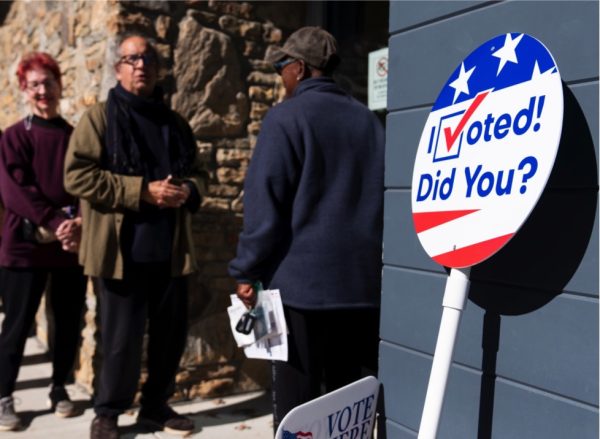
She continued: “It’s really overwhelming, especially since this is a major election and it’s my first time voting. People online are always super positive or super negative, and it’s always really black or white and people always lean one way or another about the candidates.”
Freshman Madison Schneider said that she finds the election to be a bit scary, though she is making an effort to educate herself and is eager to vote.
“I’ve been following the election for a few months now,” Schneider said, “so based on my own reading — and I tend to read both sides to understand what everyone stands for — I’m then going to make an educated decision.”
Foytlin and Cave said as non-North Carolina natives, it is much easier to follow the presidential candidates than the local ones.
“I read the news from the Wall Street Journal a lot,” Cave said, “so I feel like I have a good idea of what’s going on [nationally]. But for the smaller positions in North Carolina, I’m kind of indifferent to that.”
The importance of voting
For freshman Jennifer Chavez, the election is daunting because it determines so many years to come.
“I’m nervous to have to vote for Harris or Trump, knowing that they will be in office for the next four years,” Chavez said. “And so many people say they don’t like either candidate.”
She continued: “A lot of young people think that their one vote won’t make a difference. But if everyone who thinks that would actually go out and vote, it would actually make a difference. People have to go vote.”
Fondeur said that it’s vital for young voters to exercise their constitutional right to participate in the election.
“It’s super important to vote,” Fondeur said. “Everyone always thinks their vote won’t do anything, but we get to make our own futures. Since we are a younger generation, voting is directly impacting our future.”


